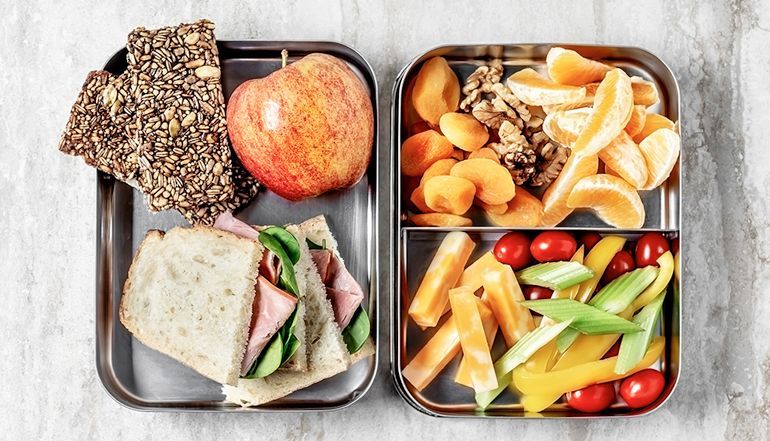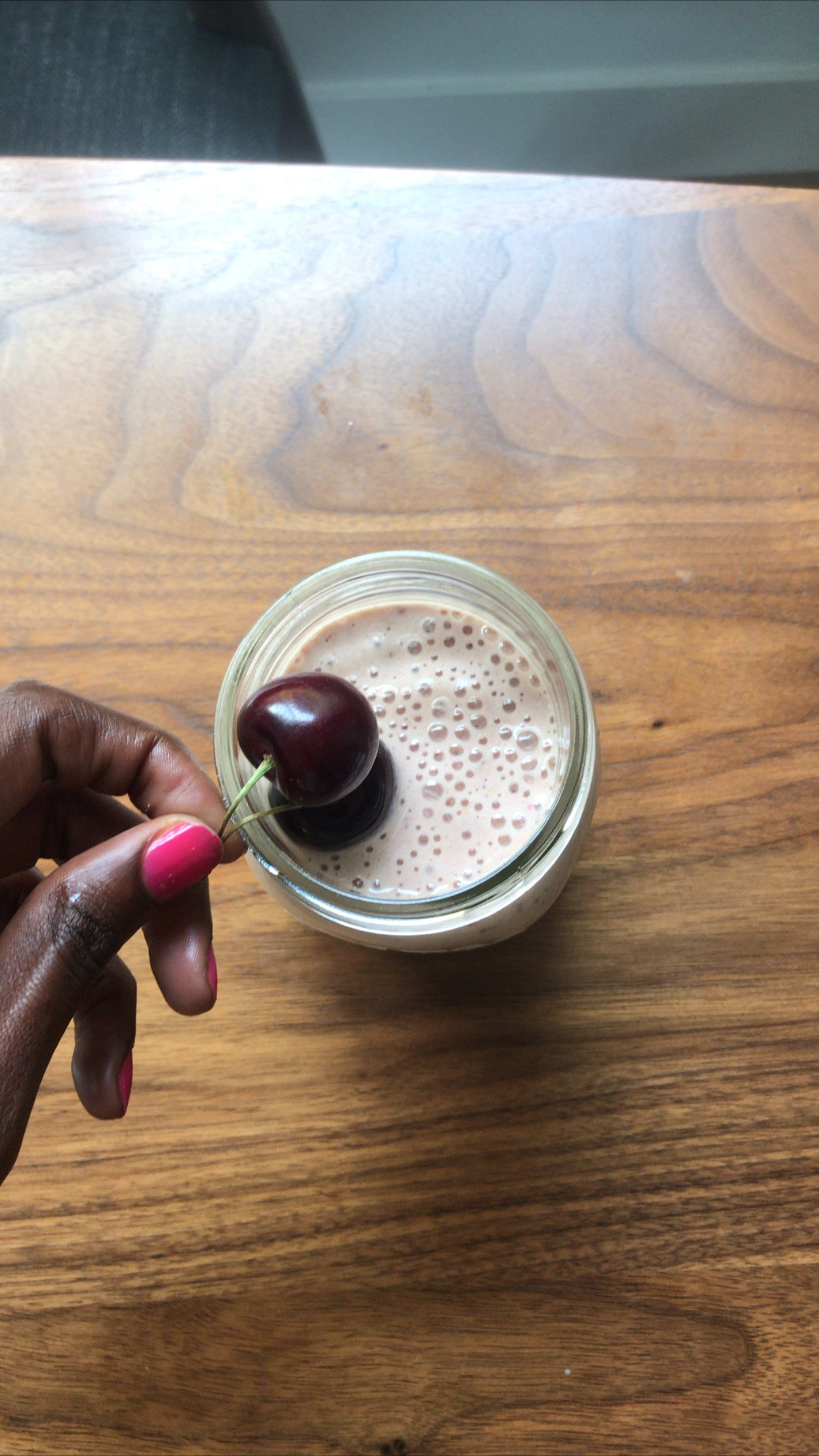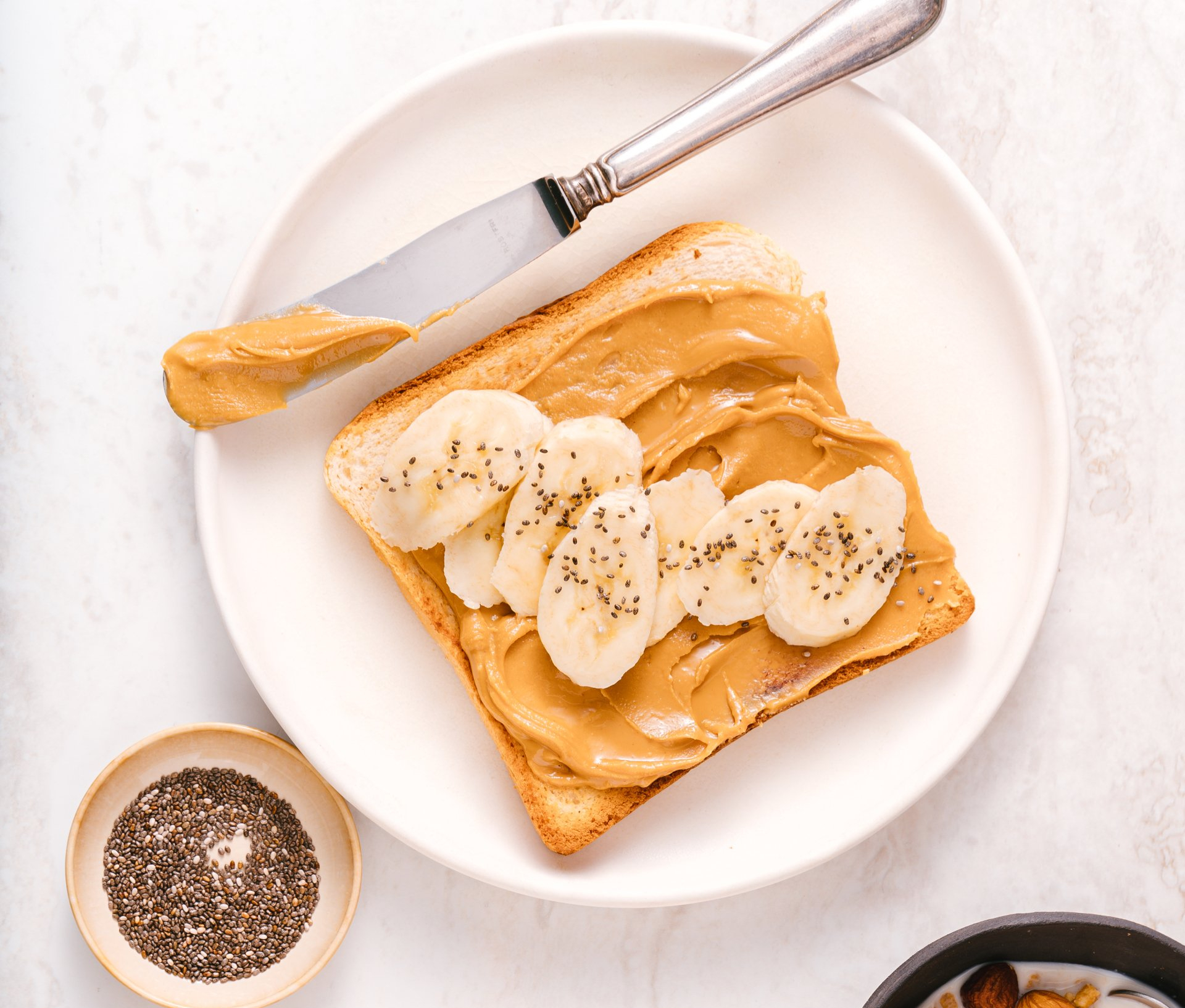Crafting a Nutritious and Satisfying 2500-Calorie Meal Plan
Hey Motivated people!
In our fast-paced modern world, achieving a balanced diet proves challenging, particularly when aiming for precise caloric targets. Whether you are an athlete, a fitness devotee, or simply prioritizing proper nutrition, a meticulously crafted
2500-calorie meal plan offers essential sustenance while aligning with your health and fitness objectives. This plan is reliable for meeting your body's nutritional demands, ensuring optimal performance and well-being. By tailoring meals to your specific needs and preferences, you can navigate the complexities of dietary management with confidence and vitality.
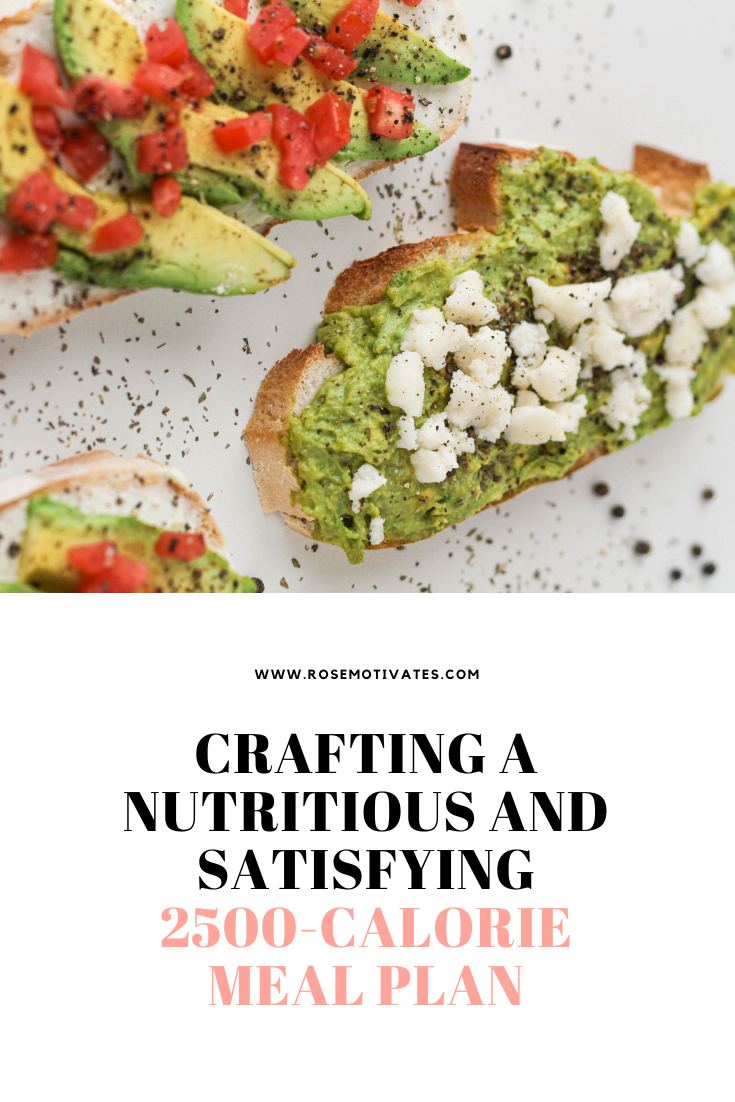
What is a 2500 Calorie Meal Plan?
A 2500-calorie meal plan is a dietary regimen designed to provide approximately 2500 calories per day, catering to individuals with higher energy requirements due to various factors such as physical activity level, metabolism, and weight goals. It serves as a blueprint for daily eating habits, ensuring adequate nutrient intake for optimal health and performance.
Building Blocks of a Healthy Meal Plan
A balanced meal plan should include a variety of nutrient-rich foods to ensure you're meeting your body's nutritional needs. Here are some essential components to consider when crafting your 2500-calorie meal plan:
Macronutrients
Protein
Protein is essential for muscle repair and growth, as well as overall body function. Aim to include lean sources of protein such as chicken, fish, tofu, beans, and legumes in each meal.
Carbohydrates
Carbohydrates provide your body with energy, making them an important part of your meal plan. Opt for complex carbohydrates like whole grains, fruits, vegetables, and legumes to fuel your activities and stabilize blood sugar levels.
Healthy Fats
Incorporating healthy fats into your diet is crucial for hormone production, brain function, and nutrient absorption. Include sources of unsaturated fats such as avocado, nuts, seeds, and olive oil in your meals.
Micronutrients
Vitamins
Ensure you're getting a variety of vitamins from fruits and vegetables to support immune function and overall health.
Minerals
Include mineral-rich foods like leafy greens, nuts, seeds, and whole grains to maintain proper bodily functions and electrolyte balance.
Importance of a Balanced Diet
Why Balance is Key
Achieving a balance of macronutrients (carbohydrates, proteins, and fats) and micronutrients (vitamins and minerals) is crucial for overall health and vitality. A well-rounded 2500-calorie meal plan should prioritize nutrient-dense foods while minimizing empty calories from processed or sugary items.
Optimizing Nutrient Distribution
Distributing calories and nutrients throughout the day helps maintain steady energy levels, enhances satiety, and supports muscle repair and growth. Proper timing of meals and snacks can maximize nutrient absorption and utilization, ensuring sustained energy for daily activities and workouts.
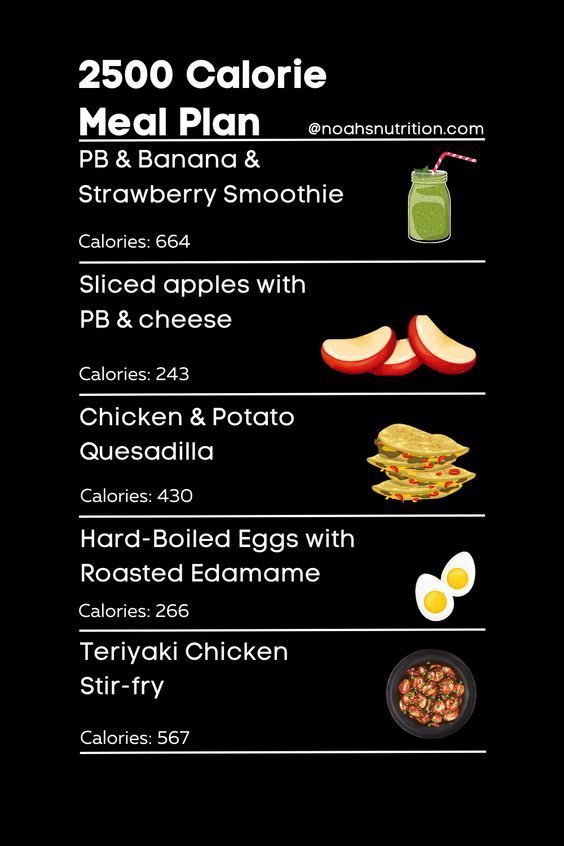
Understanding Your Goals and Preferences
Before diving into meal planning, it's crucial to identify your primary goals and dietary preferences. Whether you're looking to gain weight, lose weight, follow a vegetarian diet, or stick to a tight budget, there's a 2500-calorie meal plan that can be tailored to suit your needs.
Crafting Your 2500-Calorie Meal Plan
Setting Goals and Assessing Needs
Before embarking on a 2500-calorie meal plan, it's essential to establish clear goals and assess individual nutritional needs. Factors such as age, gender, weight, activity level, and metabolic rate play a significant role in determining calorie requirements. Consulting with a registered dietitian or nutritionist can provide personalized guidance based on specific goals and dietary preferences.
Meal Planning Strategies
Focus on Whole Foods
Emphasize whole, nutrient-rich foods such as fruits, vegetables, lean proteins, whole grains, and healthy fats. These foods not only provide essential nutrients but also offer satiety and sustained energy, making them ideal choices for a 2500-calorie meal plan.
Balanced Macronutrient Ratio
Aim for a balanced distribution of macronutrients, with approximately 50% of calories from carbohydrates, 25% from protein, and 25% from fats. Adjustments can be made based on individual preferences and goals, such as increasing protein intake for muscle building or adjusting carbohydrate intake for athletic performance.
Sample 2500 Calorie Meal Plan
Now that you understand the basics of meal planning let's put it into action with a sample day of meals totaling 2500 calories:
Breakfast (600 calories)
- Scrambled eggs with spinach and tomatoes (300 calories)
- Whole grain toast with avocado (300 calories)
Mid-Morning Snack (200 calories)
- Greek yogurt with mixed berries (200 calories)
Lunch (700 calories)
- Grilled chicken salad with mixed greens, quinoa, and balsamic vinaigrette (500 calories)
- Whole grain roll (200 calories)
Afternoon Snack (300 calories)
- Hummus with carrot sticks and whole grain crackers (300 calories)
Dinner (700 calories)
- Baked salmon with roasted sweet potatoes and steamed broccoli (500 calories)
- Quinoa pilaf with mixed vegetables (200 calories)
2500 Calorie Meal Plan for Weight Gain
For those aiming to gain weight, it's crucial to consume a surplus of calories while prioritizing nutrient-dense foods to support muscle growth and overall health. Here's a sample meal plan designed to help you achieve your weight gain goals:
Breakfast (700 calories)
- Protein-rich smoothie with Greek yogurt, banana, almond butter, oats, and protein powder
Lunch (600 calories)
- Quinoa salad with chickpeas, mixed greens, avocado, feta cheese, and a lemon tahini dressing
Dinner (800 calories)
- Baked chicken breast with sweet potato mash and steamed broccoli
Snacks (400 calories)
- Trail mix with nuts, seeds, and dried fruit
- Peanut butter and banana sandwich on whole-grain bread
2500 Calorie Meal Plan for Weight Loss
For individuals looking to shed excess weight, focusing on nutrient-dense, low-calorie foods while maintaining a calorie deficit is key. Here's a sample meal plan designed to support your weight loss journey:
Breakfast (500 calories)
- Veggie omelet with egg whites, spinach, tomatoes, and mushrooms, served with a side of mixed berries.
Lunch (500 calories)
- Grilled tofu salad with mixed greens, bell peppers, cucumbers, and a light vinaigrette dressing
Dinner (700 calories)
- Baked salmon with quinoa pilaf and roasted vegetables (broccoli, carrots, bell peppers)
Snacks (300 calories)
- Carrot sticks with hummus
- Air-popped popcorn seasoned with nutritional yeast
2500 Calorie Meal Plan for Building Muscle
Building muscle requires a combination of consistent exercise and proper nutrition. Here's a sample meal plan tailored to support muscle growth and recovery:
Breakfast (700 calories)
- Protein-packed smoothie with Greek yogurt, spinach, banana, protein powder, and almond butter
Lunch (600 calories)
- Grilled chicken salad with mixed greens, cherry tomatoes, cucumber, avocado, and balsamic vinaigrette
Dinner (800 calories)
- Baked salmon with quinoa pilaf and roasted vegetables (broccoli, carrots, bell peppers)
Snacks (400 calories)
- Greek yogurt with granola and mixed berries
- Trail mix with nuts, seeds, and dried fruit
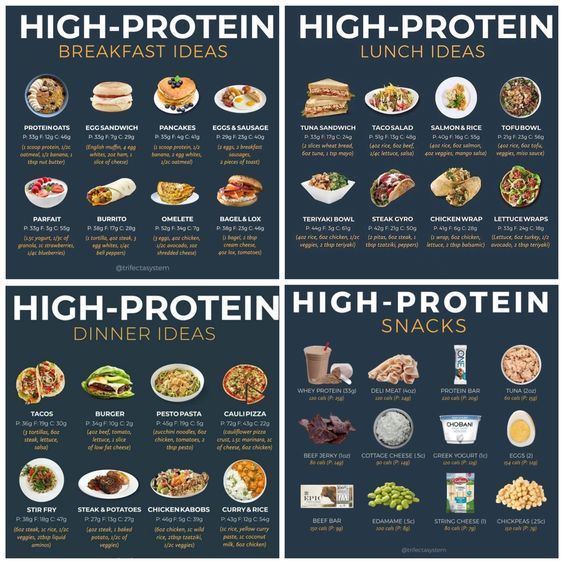
Navigating Your Journey to Health and Vitality
By following this sample meal plan and customizing it to fit your individual needs, you can embark on a journey towards improved health, enhanced performance, and overall well-being.
Whether your goal is to gain weight, lose weight, build muscle, or maintain a healthy lifestyle, a well-crafted 2500-calorie meal plan can serve as your roadmap to success. Take the time to understand your unique nutritional needs, prioritize nutrient-dense foods, and tailor your strategy accordingly. With dedication and consistency, you can achieve your health and fitness goals while enjoying delicious and satisfying meals every day.
Your moment to speak is now! Comment if this article helped you, and discuss your journey to a toned body transformation, check in and tell us how is it going, we're in this together! 🖥💪🏽
Please share in the comments!
Related articles
New Paragraph






